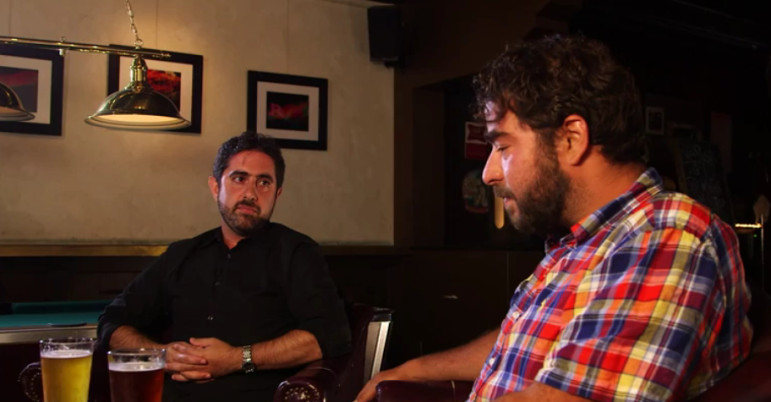
BRIC
Shirazi (left) and Gharib on the set of Straight Up.
International politics doesn’t have much of a presence on this site. But it’s not difficult to explain why the U.S.-Iran nuclear deal is something City Limits would care about.
After all, our city is home to the United Nations and to a large (and ideologically diverse) Jewish population. From Robert Menendez and Chuck Schumer on one side to Cory Booker and Hakeem Jeffries on the other, the metro region is the base for several elected leaders who played a prominent role in the debate over the deal. It was for treatment at New York-Weill Cornell Medical Center that President Carter permitted the exiled Shah of Iran to enter the United States in 1979, helping to trigger the seizure of the U.S. Embassy in Tehran.
Perhaps most importantly for an urban area of 8.4 million people and some 305 square miles, Tehran is a city of 8.1 million people and some 280 square miles. If dwellers of megacities have anything in common, Tehranians and New Yorkers probably have something to chat about, even if it is just how horrible the traffic is (theirs is worse).
The best reasons for talking about the deal, however, are Ali Gharib and Nima Shirazi, whom I was glad to join for a beer in the latest episode of Straight Up, the BRIC TV reporters’ roundtable show filmed at the Emerson Bar on Myrtle Avenue. Gharib writes regularly on Middle East policy and American politics at The Nation and other outlets, while Shirazi is a widely published writer on U.S. policy toward Iran and other countries in the region, with much of his clear-headed commentary available on his WideAsleepInAmerica blog.
Together they raised critical questions about the mainstream premise around the Iran-U.S. story: the certitude that sanctions worked, the imminence of the threat of war, the notion that Iran was seeking nuclear arms, the implication that U.S.-Iranian relations began with the hostage crisis. And each spoke frankly about what it was like to be an Iranian-American observer to the debate about the nuclear deal.
Watch the full show below, or go here to see shorter clips from the episode.








